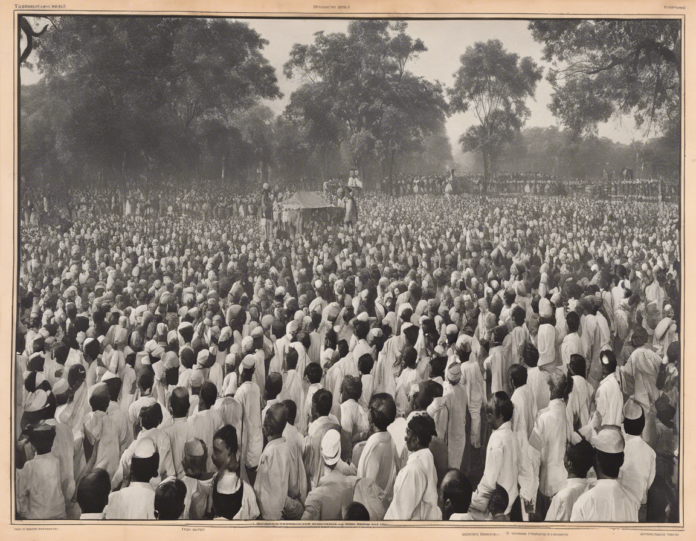India is a country known for its cultural diversity, rich heritage, and deep-rooted traditions. One of the unique aspects of the Indian constitution is its commitment to upholding secularism. The term ‘secularism’ in the Indian context refers to a principle that ensures equality for all religions and promotes a separation between religion and the state.
Secularism in India is enshrined in the Preamble to the Constitution, which declares India to be a “Sovereign Socialist Secular Democratic Republic”. The notion of secularism in India goes beyond the mere separation of religion and state; it also encompasses the state’s duty to treat all religions equally and to protect the rights of individuals to practice their faith freely.
Historical Background
The roots of secularism in India can be traced back to the freedom struggle against British colonial rule. Leaders like Mahatma Gandhi, Jawaharlal Nehru, and B.R. Ambedkar played crucial roles in shaping the secular character of independent India. The framers of the Indian Constitution, led by Dr. B.R. Ambedkar, recognized the importance of secularism in a diverse and pluralistic society like India.
Key Provisions
-
Equality before Law: Article 14 of the Indian Constitution guarantees equality before the law to all individuals, irrespective of their religion. This ensures that the state does not discriminate against anyone on the basis of their religious beliefs.
-
Freedom of Religion: Articles 25 to 28 of the Constitution collectively guarantee the freedom of religion to all citizens. This includes the right to practice, profess, and propagate any religion of choice. The state is also barred from compelling individuals to pay taxes for the promotion of any particular religion.
-
State Neutrality: The Indian state is expected to maintain neutrality in matters of religion. It cannot favor or discriminate against any particular religion. This principle ensures that the state does not interfere with religious practices and beliefs.
-
Uniform Civil Code: While not yet implemented, the Directive Principles of State Policy in Article 44 advocate for the adoption of a Uniform Civil Code. This code aims to provide a common set of laws governing personal matters such as marriage, divorce, and inheritance, irrespective of individuals’ religious beliefs.
-
Protection of Minority Rights: The Constitution of India provides for the protection of minority rights. Minority communities are granted the right to establish and administer educational institutions of their choice under Article 30. Additionally, the state is mandated to promote the educational and cultural interests of minorities.
-
Anti-Discrimination Laws: Various laws in India prohibit discrimination on the basis of religion. The Protection of Civil Rights Act, 1955 and the Scheduled Castes and Scheduled Tribes (Prevention of Atrocities) Act, 1989 aim to protect marginalized communities, including religious minorities, from discrimination and atrocities.
Challenges and Criticisms
Despite the constitutional provisions safeguarding secularism, India has faced several challenges in upholding this principle. Communal tensions, religious polarization, and instances of religious violence have posed significant threats to India’s secular fabric. Critics argue that the implementation of a Uniform Civil Code has been slow, leading to differential treatment in personal laws based on religious affiliations.
Role of Judiciary
The judiciary plays a crucial role in upholding secularism in India. The Supreme Court of India has delivered several landmark judgments safeguarding the secular character of the Constitution. In cases like Shah Bano, Ayodhya, and Sabarimala, the courts have intervened to uphold the principles of equality, freedom of religion, and non-discrimination.
Future Outlook
The future of secularism in India remains a topic of debate and discussion. As the country grapples with religious diversity and identity politics, the need to reinforce the principles of secularism becomes more crucial than ever. Strengthening inter-religious harmony, promoting tolerance, and ensuring equal rights for all religious communities are vital steps towards preserving India’s secular ethos.
Conclusion
Secularism in India is not just a constitutional principle but a guiding philosophy that shapes the country’s democratic framework. By upholding secular values, India aims to foster an inclusive society where individuals of all faiths can coexist harmoniously. As India continues on its path of growth and development, the preservation of secular ideals remains essential for maintaining the country’s unity in diversity.
Frequently Asked Questions (FAQs)
- What is the significance of secularism in India?
Secularism in India ensures that individuals have the freedom to practice their religion without interference from the state. It promotes equality among all religions and upholds the principle of state neutrality in matters of faith.
- How does the Indian Constitution protect religious freedom?
The Indian Constitution guarantees the freedom of religion to all citizens under Articles 25 to 28. Individuals have the right to practice, profess, and propagate their religion of choice without any discrimination.
- What are the key provisions related to secularism in the Indian Constitution?
Key provisions include equality before the law (Article 14), freedom of religion (Articles 25-28), state neutrality in religious matters, the promotion of a Uniform Civil Code (Article 44), and the protection of minority rights.
- How has the judiciary supported secularism in India?
The judiciary, particularly the Supreme Court of India, has played a vital role in upholding secularism through landmark judgments that reinforce the principles of equality, freedom of religion, and non-discrimination.
- What are some challenges to secularism in India?
Communal tensions, religious polarization, and instances of religious violence pose significant challenges to secularism in India. The slow implementation of a Uniform Civil Code and differential treatment based on personal laws also remain areas of concern.


